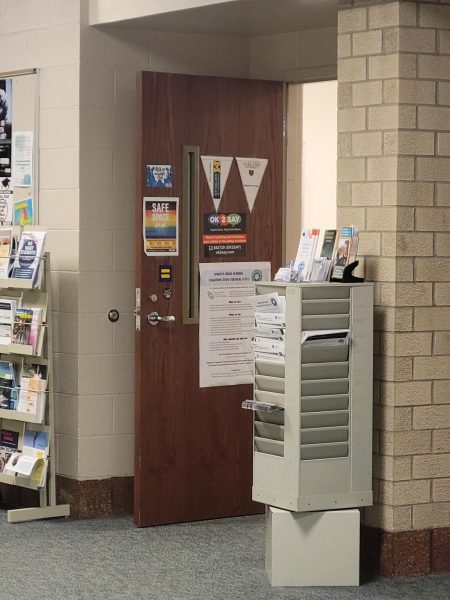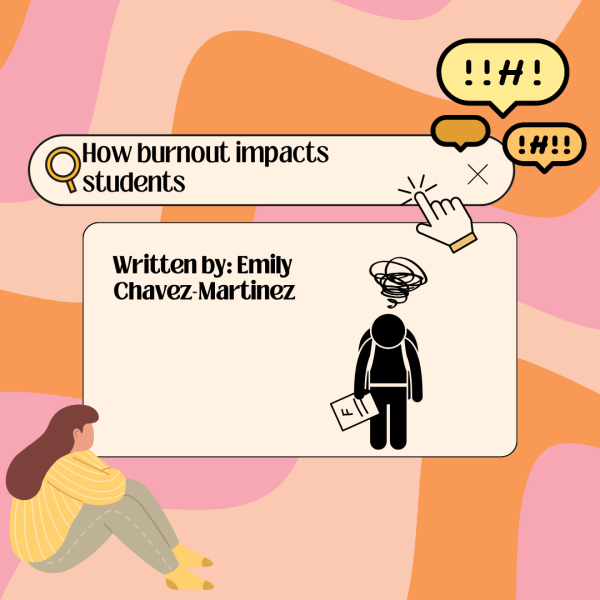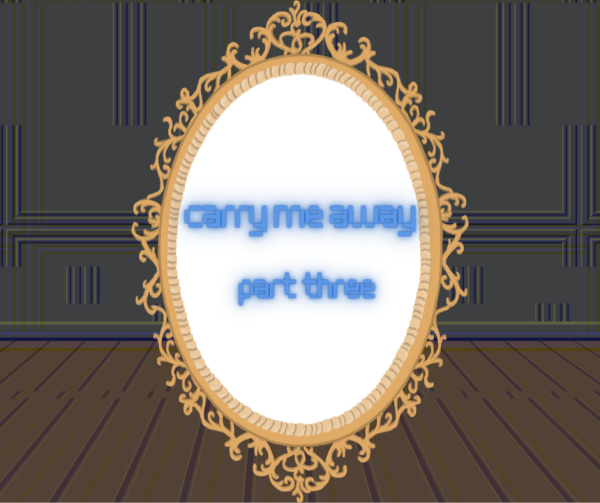The Black Widow Problem: Guest Editorial from Sam Priebe
Natasha Romanoff, also known as Black Widow, is a main hero in the Marvel Universe. Well… a “main hero.”
Despite being advertised as such, Natasha only has around one and a half hours of screen time across the seven movies she has appeared in— Iron Man 2, Avengers, Captain America: The Winter Soldier, Avengers: Age of Ultron, Captain America: Civil War, Avengers: Infinity War, and Avengers: Endgame.
Let’s break down just what exactly develops in this hour-and-thirty-minutes of screen time.
IRON MAN 2
In Natasha’s debut, she is brought in as a possible assistant to Tony Stark and Pepper Potts. Natasha’s first scene in the Marvel Cinematic Universe, or the MCU for short, is one that is blatantly sexualized for no other reason than Scarlett Johansson is an attractive woman in a superhero movie. There is strangely seductive-sounding music in the background of this otherwise “innocent” scene setup, where Tony Stark and Happy Hogan are boxing together. Tony And Happy are both sweaty messes, and it feels almost laughable to watch the screen cut from Natasha’s perfect figure to Tony, his face red and his hair stuck to his face with sweat. It’s not until later in the movie that Natasha’s superhero-status is revealed— she doubles as an agent for SHIELD, under the code-name “Black Widow.” Her first time in Black Widow’s stereotypical costume literally begins with her changing her clothing in a car, the camera getting a shot of her taking off her shirt, her chest just completely out in the open. And, not to mention, the fact that her suit is skin-tight, her hair is down and curly, and she somehow manages to not get a single scratch despite the unconventional dress and all lack of bodily protection.
Of course, Natasha gets her “girl-power” fight scene, and then is never seen in the movie again. Total screen time: 9 minutes, 15 seconds. How much of this screen time was used to develop Natasha as a human being, instead of just a sex object? None of it.

AVENGERS
In the 2012 movie Avengers, Natasha returns for the first time since her last appearance in Iron Man 2. Her first scene in the movie goes like this: she’s being held captive in a warehouse, in a black, skin-tight dress, cut just low enough for her chest to be slightly exposed, with red lips and a pair of heels. Her purpose in this movie is… shaky, to say the least. Throughout the movie she does seemingly nothing of emotional importance, or nothing that somebody else in the film could not have easily done. There were no personal moments— except one.
In a scene with Loki, the antagonist of the film and Thor’s cunning little brother, Natasha visits him in his holding cell and they strike up a conversation. Loki brings up Natasha’s past, the watcher’s first time hearing about anything in-depth relating to Natasha. Natasha reveals that before she worked for SHIELD, she was a Russian assassin, where she says “I got red in my ledger.” This is the first look we get as fans into what exactly Natasha is like— she has done some bad things in her life. This scene should be great, a first insight into one of our main hero’s mind, but instead… We start the scene out with a backshot of Natasha. It’s almost funny, honestly, how impersonal this makes the entire scene. This is supposed to be a moment of emotional openness for her, and yet, the director still had to give us a sexualized shot of her.
The rest of Avengers is pretty lackluster, in my opinion. It’s not one of my favorites. Total screen time: 24 minutes, 45 seconds. How much of this screen time was used to develop Natasha as a human being? Well, I’d say about 5 minutes of it.

Captain America: The Winter Soldier
We’ve made it— my favorite movie of all time. Captain America: The WinterSoldier (or CATWS) has a charm to it that no other Marvel movie has been able to top for me. The characters are amazing, the action is great, and above all, Natasha is actually treated as human in this movie. Her first appearance is short and sweet— she picks Steve Rogers, aka Captain America, up in her car, joking with him, actually showing Natasha having a genuine friendship. The movie heads onto a fight scene, and while Natasha is still sporting that unconventional battle-gear, I’ll let it slide, since it’s something that doesn’t change for many movies to come.
Later on in the film, after Natasha and Steve seek refuge in Sam Wilson’s, aka the Falcon’s, home, Natasha and Steve have a warm moment together. It’s the first time we see Natasha seriously opening up about her feelings, and she asks Steve, “If it were the other way around, and it was down to me to save your life— and you be honest with me— would you trust me to do it?” The look on Natasha’s face when Steve answers that he would is one of confusion and shock. She genuinely believed he didn’t trust her, and this is a clear indicator that Natasha’s past is not as cold and clear-cut as we were made to believe— she actually has feelings in regard to her past actions.
CATWS is the first movie in the MCU, and possibly the only, to actually give Natasha true character. We get a look inside her mind, at her vulnerabilities, and see how she truly feels. Total screen time: 24 minutes, 45 seconds. How much of this screen time was used to develop Natasha as a human being? Hey, it’s actually probably more than 20 minutes of it!

Avengers: Age of Ultron
Avengers: Age of Ultron is by far Natasha’s worst movie. This movie completely decimates her character, paints her out to be some kind of monster for things way out of her control, and most of all, fits her into a boring relationship for the sake of the plot. The one good thing about AOU, however, is the insight it gives into Natasha’s past in the Red Room, the Russian academy in which she was trained to be an assassin from a young age. It shows the Red Room in a montage of flashbacks as the Scarlet Witch hypnotizes Natasha, and it’s revealed that her time in the Red Room was made to break her spirits.
Despite this look into Natasha’s past, the movie doesn’t do her any justice. AOU sets up a relationship between Natasha and Bruce Banner, aka the Hulk. This relationship came out of absolutely nowhere, and it’s been said that the director, Joss Whedon, set up this relationship for the sole purpose of being able to see Black Widow kiss a man on screen.
During a scene with Natasha and Bruce, Bruce is voicing his fears and insecurities that come along with being the Hulk, saying he is a monster. Natasha fires back: “In the Red Room, where I was trained— where I was raised— they have a graduation ceremony. They sterilize you. It’s efficient… one less thing to worry about— the one thing that might matter more than a mission. Makes everything easier— even killing.”
Wow. Okay. This scene would have been beautiful and emotional and such a deep insight into Natasha’s character, if she hadn’t ended it with: “You still think you’re the only monster on the team?” What? She’s a monster? For what? Being forcibly sterilized as a young girl? This scene right here is the unbecoming of this movie— it paints infertile women, of all people, out to be some kind of monster. It’s ridiculous, actually. Natasha’s trauma should be painted as something that made her stronger, something that she got through and conquered to make her an Avenger, not as a terrible plot device to further bond her and her love interest.
I don’t know what else to say about AOU. It’s literally just a complete failure to Natasha’s character. Total screen time: 33 minutes, 7 seconds. How much of the screen time was used to develop Natasha as a human being? Well, a lot of it, but not at all for the right reasons.

Captain America: Civil War
Captain America: Civil War does not have much to note on. Natasha is barely in the movie, and most of the time she is engaging in fight sequences. So… total screen time: 12 minutes. How much of the screen time was used to develop Natasha into a human being? Well, none, actually.

Avengers: Infinity War
Following the events of CACW, Natasha, Steve, and Sam are on the run. They return to help fight against Thanos, but that’s about it for Natasha here. With less than ten minutes on screen, there’s not much room for any development rather than her awful blonde hair and bleached brows.
Total screen time? 5 minutes. How much of that screen time was used to develop Natasha as an actual human being? None again.

Avengers: Endgame
Right next to AOU, Avengers: Endgame is Natasha’s worst movie— for the simple fact that she dies halfway in. Natasha and Clint Barton, aka Hawkeye, have to venture to Vormir to retrieve the Soul Stone. However, at Vormir, one must die in order to get the stone. Natasha and Clint fight over who will die— and the obvious choice for all the viewers is Clint. He spent the five years after the events of Avengers: Infinity War running around Asian countries, killing people left and right under some sort of disguise. Natasha, however, had been helping society rebuild itself after the terrible events in IW. Natasha has been a beloved character for years, and Clint has been in the background.
And yet— Natasha jumps, and sacrifices herself for the Soul Stone.
This death is terrible. It cuts to Natasha on the ground, her body contorted and a clear pool of blood underneath it. It’s a brutal death, and a brutal shot, and her death was nothing but a poorly executed shock-tactic for the viewers.
The Avengers win, like they always do. But this time, they win without Natasha. And when Tony Stark meets his demise at the end of this movie, he gets a funeral. But not Natasha. Tony Stark got candlelight vigils in the streets, a beautiful funeral surrounded by all his friends and family, a public memory. Natasha doesn’t get any of these things— she gets a throwaway mention at the end of the film by Clint and Wanda Maximoff, aka the Scarlet Witch, and that is it. These people were her family, and they couldn’t even give her a funeral.
Total screen time: 16 minutes. How much of that screen time was used to develop Natasha into a human being? If dying counts as that, then about 5 minutes.

Black Widow
Just a short mention: Although this movie has not been released yet, Black Widow is Natasha’s long-awaited solo movie, and she stars alongside Yelena Belova, her colleague from the Red Room. This movie looks good, and it looks like it might give Natasha that character that we’ve been waiting for.

Your donation will support the student journalists of Dakota High School. Your contribution will allow us to purchase equipment and cover our annual website hosting costs.




